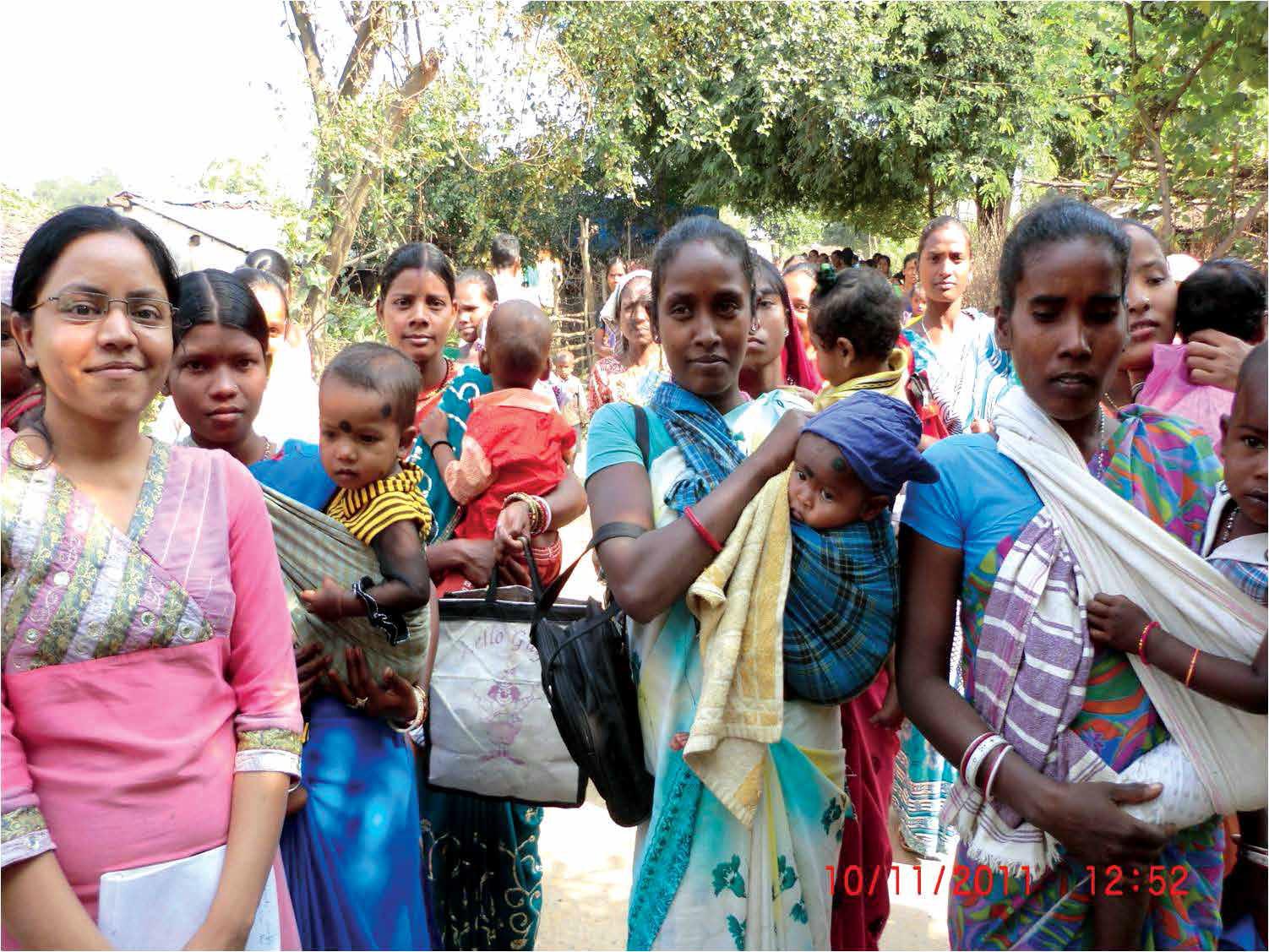Psychosocial Impact of Limited Access

Mothers and children with a Community Health Worker
About
The first in a series of four SHARE-WSSCC co-funded studies, this project comprised of three sub-components assessing:
- The social and psychological impact of limited access to sanitation
- The association between MHM practices and reproductive tract infections
- The link between WASH practices and pregnancy outcomes
The first sub-component of this project used a grounded theory approach to examine the range of sanitation-related psychosocial stressors experienced by women in four life stages during routine sanitation practices in Odisha, India. It found that sanitation practices went beyond defecation and urination and also included: carrying water, washing, bathing, MHM, and changing clothes. During the course of these activities, women encountered three broad types of stressors - environmental, social, and sexual - the intensity of which were modified by the woman's life stage, living environment, and access to sanitation facilities.
The second sub-component of this project found that interventions which ensure women have access to private facilities with water and educate women about safer, low-cost MHM materials could reduce urogenital disease among women. This relationship had never before been explored using both symptoms and laboratory diagnosed health outcomes. The findings were shared at the 3rd Annual Virtual MHM in WASH in Schools Conference, the Sanitation and Women in India two-day workshop that SHARE co-convened with WSSCC in Delhi in 2014, and at the 38th WEDC International Conference in July 2015. In addition, the findings informed the `Developing the MHM Manifesto. Moving forward the Global MHM in WinS Agenda’ meeting held in New York in October 2014, and are currently being fed into the design of an LSHTM feasibility and preparatory study for a trial on menstrual hygiene and safe male circumcision promotion in Ugandan schools that had not previously factored WASH into its thinking.
The third sub-component found that poor sanitation in general, and open defecation in particular, were strongly associated with APO after adjusting for a broad range of biological and socio-economic factors (Padhi et al., 2015). This is the first rigorous epidemiological study to demonstrate this relationship and the results have potentially important implications for maternal and newborn health policy in high burden settings.
